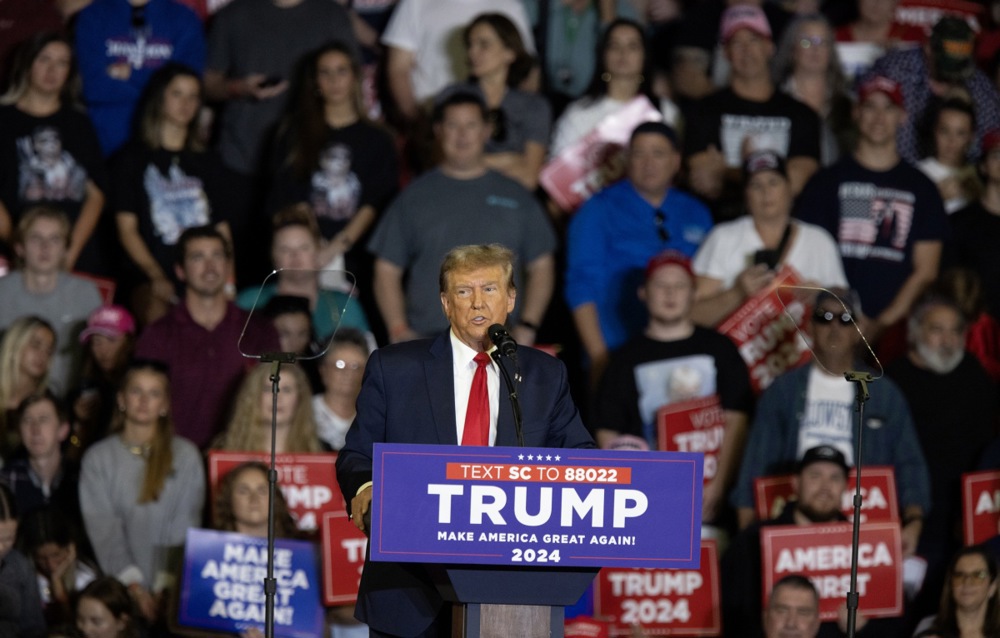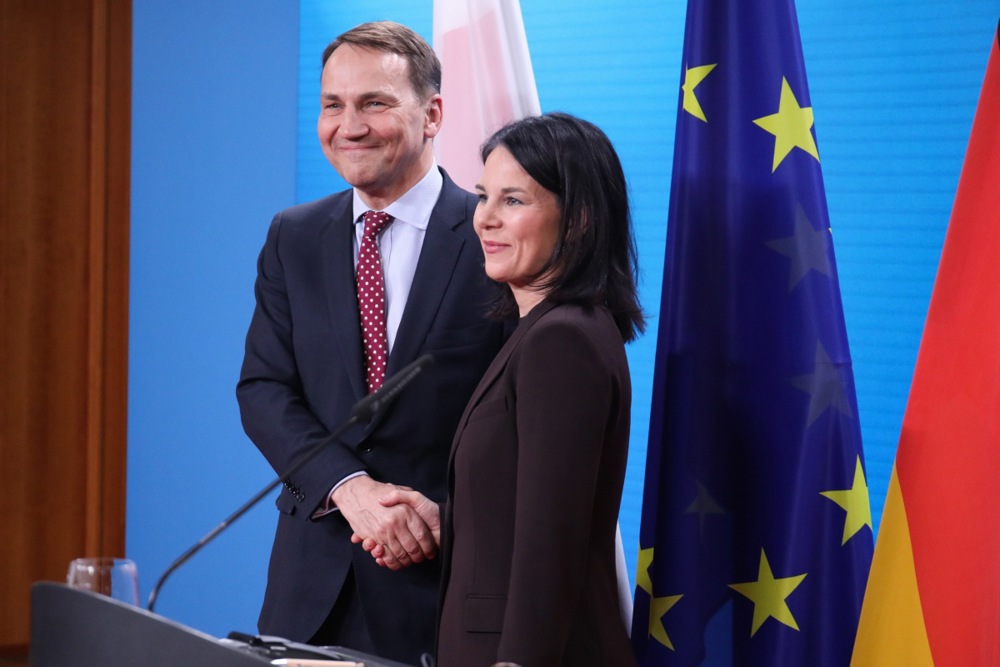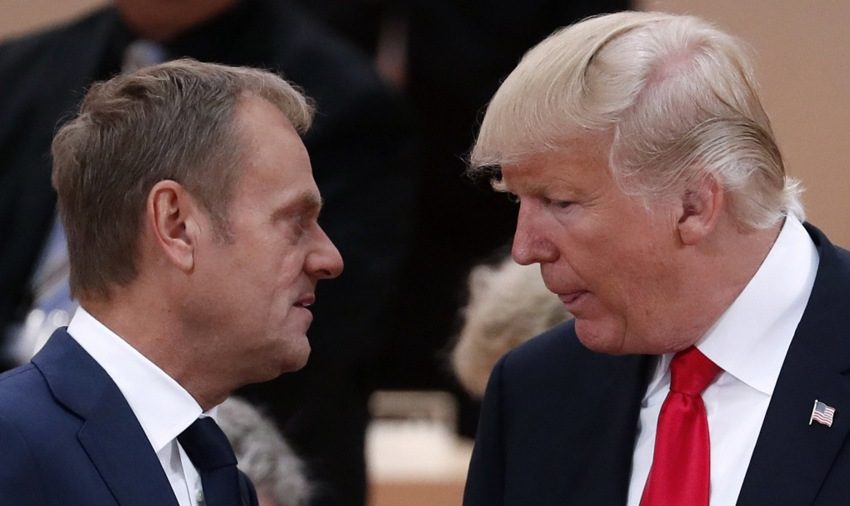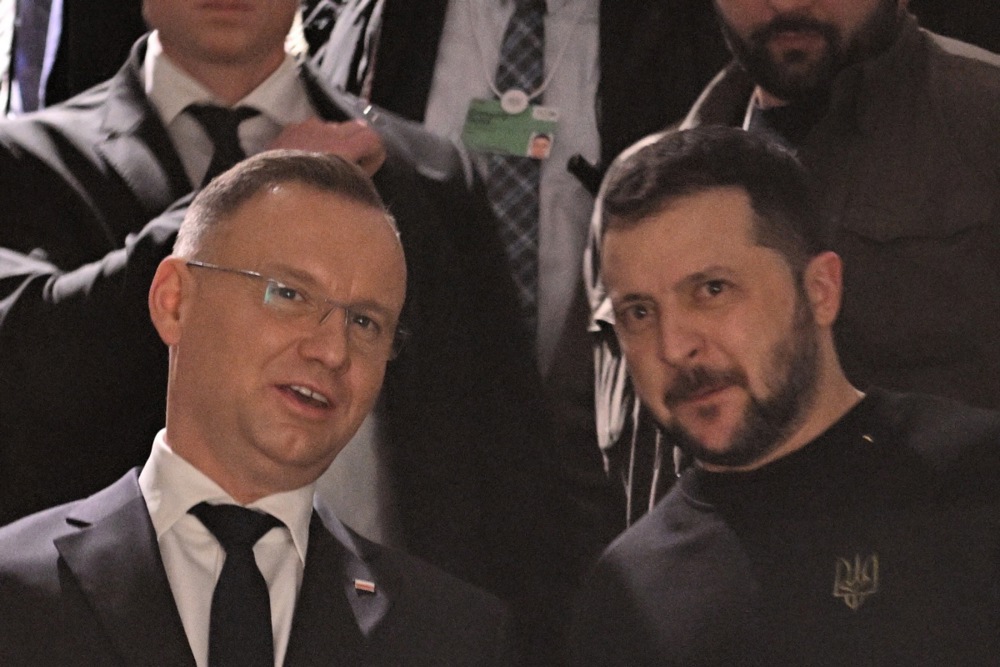US President Joe Biden has invited both Poland’s Liberal Prime Minister Donald Tusk and its Conservative President Andrzej Duda to visit the White House.
The invitation to meet on March 12 is seen as a sign that the US administration is keen to keep channels open with both camps in Poland as the US election nears.
Tusk and Duda have clashed repeatedly over domestic issues, although they have co-operated on security and foreign policy matters.
Officially, the pair’s visit has been billed as a “celebration of 25 years of Polish NATO membership, preparation for the NATO summit in Washington in July and a need to reaffirm support for Ukraine”.
The US Ambassador to Poland Mark Brzeziński has communicated the Biden administration’s “pleasure” at the formation of the Tusk Government in Warsaw by holding an official US Embassy function on “renewal in Poland”.
Biden has himself spoken approvingly of the new Government, although Washington is concerned about to what degree polarisation is occurring in Poland and how it might affect future Polish-US relations.
Warsaw University’s professor Jarosław Szczepański told Brussels Signal that, in his view: “President Biden wants to signal Washington’s desire to ensure that the polarisation which has, if anything, intensified in Poland, doesn’t destabilise the Polish State or affect its alliance with the US.
“Inviting Tusk and Duda to visit the White House together is a sign that America does not want to take sides in Polish internal disputes and that, if necessary, it is ready to mediate.”
The construction of the first nuclear power station in Poland, to be carried out in partnership with the US, has also been of concern to the White House and the Americans are keen to see their interests remain secure in Poland.
The US administration will likely also have taken note of the fact that the Polish Government, as with its predecessor, is accused of rule-of-law violations, although no official reaction has so far been forthcoming from Washington.
Poland remains an important strategic partner for the US in Europe, especially given Warsaw’s significant spending on defence – at 4 per cent of GDP. Its position and role on the Eastern flank of NATO is also high on Washington’s radar as a hub for military and humanitarian aid for Ukraine.
Poland hosts American troops, benefits from US technology and investments and is importing energy from the US, so the benefits of good co-operation are mutual.
The previous Polish Conservative (PiS) government treated all these as priorities and struck up a good relationship with the Biden administration in the aftermath of the Russian invasion of Ukraine.
Biden’s March meeting with Tusk and Duda will also come following the recent controversy sparked by former US president Donald Trump’s remarks about how America would “not defend NATO allies” that don’t pull their weight on defence.
Trump recounted telling the president of an unidentified NATO member that he would “encourage” Russia to do as it wishes to members who failed to meet the trans-Atlantic alliance’s defence spending targets.
“‘You didn’t pay? You’re delinquent?’ … ‘Yes, let’s say that happened.’ No, I would not protect you. In fact I would encourage them to do whatever the hell they want.
‘You gotta pay,” Trump recalled saying.
Szczepański said he felt the Polish leaders’ invitation also signalled Biden was putting clear blue water between himself and Trump with regard to his attitude to NATO.
The US President has signalled that, while he is Head of State, “America will defend every inch of NATO States territory”, marking a guarantee that is of vital importance to Poland.
The Biden administration will likely have also noted that, while Tusk has chastised both US Republican lawmakers and Trump for their perceived lack of support for Ukraine, Duda and the PiS have not.
PiS politicians appear keen to remind the public that the last Trump administration provided increased military support to Poland, sold crucial weapons to Ukraine and also helped Poland cut its dependence on Russian gas by exporting liquid gas to the country.
The same PiS politicians in private have also expressed disappointment that Biden has seemingly failed to react to controversial moves made by the Tusk Government regarding its takeover of public media and the courts.
In that respect, the PiS is equally disappointed in the US’ and Brussels’ establishments for, in its members’ eyes, applying double standards in judging the previous PiS administration and that of Tusk.
Such dissatisfaction was, to many, clearly signalled by the move to appoint radical MEP Dominik Tarczyński as the head of the PiS faction within the European Conservative Reformers (ECR) group. That was reportedly with a brief to build contacts with the US Republicans, one of whom – JD Vance – has gone on record criticising Tusk for “authoritarian tendencies”.
Tarczyński replaced Ryszard Legutko MEP in that position because the PiS leader Jarosław Kaczyński was apparently not satisfied with the performance of the PiS MEPs in Brussels.
In private, it seems PiS MPs recognise there is a risk in supporting Trump due to a lack of clarity regarding his position on Russia and the war in Ukraine.
Still, it is said most of them believe the benefits of him being elected would outweigh the disadvantages; a Trump administration would be more likely pressure Tusk’s Government on domestic issues and its increasingly close relationship with Germany and France, which the PiS opposes.





